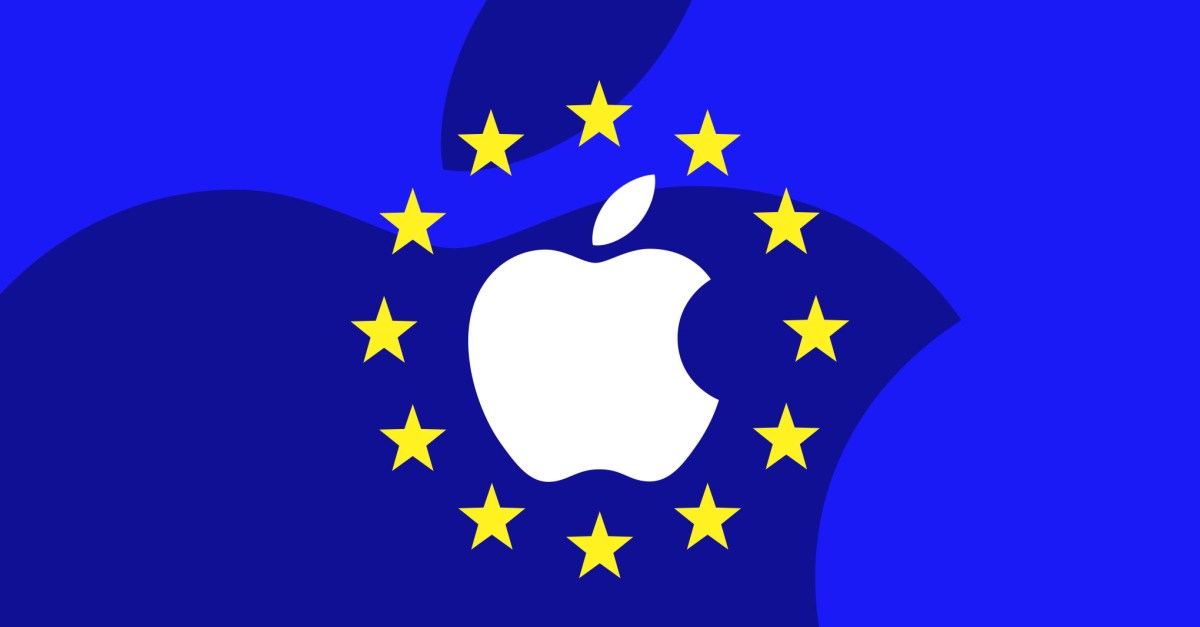EU Pushes Apple to Open iOS Features: A Seismic Shift for App Developers and Consumers?
The European Union is escalating its pressure on Apple to open up its iOS operating system, a move that could drastically alter the app development landscape and impact millions of consumers. This isn't just about tweaking a few settings; it's a potential paradigm shift in the control Apple wields over its walled garden. The implications are far-reaching, affecting everything from app store competition to user privacy.
What's Driving the EU's Push?
The EU's Digital Markets Act (DMA), a landmark piece of legislation aimed at curbing the power of Big Tech, is the driving force behind this push. The DMA targets gatekeeper platforms like Apple, aiming to foster a more competitive and open digital ecosystem. Specifically, the EU argues that Apple's current iOS structure restricts competition and limits user choice.
Key Concerns Highlighted by the EU:
- App Store Monopoly: The EU contends that Apple's App Store enjoys a dominant market position, allowing them to dictate terms to developers and ultimately limiting consumer choice. This includes controlling app distribution, payment processing fees, and data access.
- Sideloading Restrictions: Currently, iOS users can only download apps from the official App Store. The EU wants to mandate sideloading, allowing users to install apps from alternative sources. This opens the door for increased competition and potentially lower prices.
- Interoperability Issues: The EU is also pushing for greater interoperability between different messaging apps, arguing that users should be able to seamlessly communicate across platforms, irrespective of the operating system they use. This directly challenges Apple's iMessage dominance.
Potential Impacts: A Two-Sided Coin
The EU's actions could have significant consequences, both positive and negative:
Potential Benefits:
- Increased Competition: Opening up iOS could lead to more app choices, potentially driving down prices and improving app quality through increased competition.
- Greater User Control: Sideloading would give users more freedom and control over their devices, allowing them to choose where they download apps from and potentially utilize more customizable features.
- Enhanced Innovation: A more open ecosystem could foster innovation, as developers are no longer constrained by Apple's strict guidelines and approval processes.
Potential Drawbacks:
- Security Risks: Sideloading opens the door to potentially malicious apps, posing a significant security risk for users. Apple's tightly controlled App Store currently offers a degree of protection against such threats.
- Privacy Concerns: While some argue that increased competition could benefit user privacy, others worry that less stringent app store regulations could lead to more invasive data collection practices.
- Fragmented User Experience: An increasingly open iOS could lead to a fragmented user experience, with different apps and functionalities potentially behaving inconsistently.
Apple's Response and the Road Ahead
Apple has voiced concerns about the EU's demands, arguing that opening up iOS would compromise user security and privacy. They maintain that their current system is designed to protect users from malicious software and safeguard their data. However, the EU's determination to enforce the DMA suggests a protracted legal battle is likely.
The coming months will be crucial in determining the outcome. The EU's decision will set a significant precedent, influencing how other jurisdictions regulate tech giants and potentially shaping the future of mobile operating systems worldwide. This is a story that warrants close attention from app developers, consumers, and policymakers alike.
Further Reading & Resources:
Call to Action: What are your thoughts on the EU's push to open up iOS? Share your opinions in the comments below!
